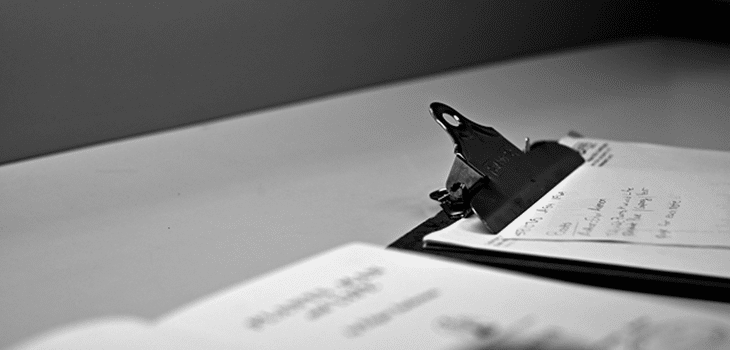If you’ve bought a home using a standard REIWA Offer & Acceptance (O&A) you’re entitled to complete a pre-settlement inspection.
But your right to complete that inspection has limits, as we explain below.
What is a pre-settlement inspection?
Sometimes referred to as a final inspection, a pre-settlement inspection allows you to check that the seller has complied with their obligations under the contract.
These obligations can arise from special conditions contained in the contract. For example, if the seller has agreed to replace the hotplate then you’re entitled to check that this has been done before settlement.
But they also arise from clause 9.1(f) of the 2018 General Conditions in which the seller warrants that the property will be in the same state and condition as it was prior to entering into the contract.
In other words, you’re entitled to ensure the pool hasn’t turned green, the lawns and gardens haven’t died, and the owner hasn’t removed the carpets and curtains.
What can you check at the pre-settlement inspection?
There’s virtually no limit to what you can check at the pre-settlement inspection but you can only insist on the seller completing repairs that relate to their obligations under the contract.
So there’s little point in flushing the toilet and turning on the lights if your contract doesn’t contain a clause that obliges the seller to have these in working order at settlement. Conversely, if the seller has agreed to repaint the lounge room, you have every right to check this has been completed.
Where your contract includes a good working order clause you’re entitled to check the operation of all fixtures and fittings mentioned in that clause.
That might include:
Pre-settlement inspection checklist
- Check the hot water system is working. Storage systems on vacant properties may need to be restarted prior to the inspection.
- Check the location of any solar booster switches.
- Switch on a hot plate, oven, and grill.
- Check oven light and fan working.
- Switch on all lights.
- Check power points with a lamp or hairdryer.
- Check reticulation is operational.
- Find out the location of the bore and solenoids (if present).
- Ensure sprinkler heads working.
- Check pool pump working.
- Check pool cleaning equipment is working (if included).
- Check air conditioning and heating.
- Check and test the alarm system.
- Ask the seller or agent to show you how the pool filtration, hot water system, and alarm panel work.
- Check dishwasher working.
- Check exhaust fans and bathroom heat lamps working.
- Check sinks drain properly.
- Request copies of appliance operation manuals.
- Test RCDs and smoke alarms, if mentioned in your contract. Check with the seller before testing RCDs as some appliances are sensitive to power surges.
What about rubbish?
Clause 6.1(b)(2) of the 2018 General Conditions requires the seller to remove rubbish, vehicles, and their own possessions prior to the Possession Date, usually settlement. But that doesn’t mean that they have to remove the rubbish prior to the pre-settlement inspection. If the property is the seller’s principal residence then they’re required to remove all rubbish prior to 12 noon on the day after settlement.
When can you complete the pre-settlement inspection?
The pre-settlement inspection must be completed within 5 working days prior to settlement or possession, whichever is earlier. This can become challenging when settling close to Easter or Christmas. If you’re bringing a tradie to check on the work done by the seller it becomes even trickier. Don’t forget, you only get one inspection. If you have two tradies, both need to attend the inspection at the same time. If the seller plays hardball you may not get a second inspection.
How many pre-settlement inspections can you do?
Clause 5.1 of the 2018 General Conditions provides that you can complete one inspection. You’re allowed one further inspection if you identify items that require rectification by the seller.
Who can attend the pre-settlement inspection?
Clause 5.1(c) of the 2018 General Conditions provides that the buyer can be accompanied by 2 persons. Bringing your mum, dad, friends from uni, and Uncle Bill isn’t an option unless you get the seller’s approval first. Choose your two advisors wisely.
If you plan your pre-settlement inspection well ahead of time it will become a powerful tool to ensure that you get everything that was promised on the contract. Don’t leave it to the last minute.
Is there a difference between a final inspection and a pre-settlement inspection?
Although there’s no reference to either term in the General Conditions, the inspection completed prior to settlement is often called a final inspection. Both terms refer to the same inspection. The term final inspection implies that there’s only one inspection available to a buyer when checking the condition of the property prior to settlement and this isn’t the case. Therefore we prefer the term pre-settlement inspection.
If you have more questions please ask your settlement agent or call us on 1300 001 358.
The final inspection is the buyer’s chance to ensure that the property is in the condition promised by the offer and acceptance before the transaction is finalised on the settlement date.
From electrical sockets to floor coverings, there are several things to check during a final inspection – so as a buyer, you may be tempted to bring along as many people as you can to make sure you don’t miss anything important.
However, the Joint Form of General Conditions (the document that governs every contract in WA) specifies that:
“The Buyer: may be accompanied by 2 persons on an inspection;”
So unless the contract specifies that you are allowed more than the usual amount of guests, only two people can come along with you.
For the vast majority of property transactions, this is appropriate. Too many cooks can spoil the broth – or in the case of housing inspections, too many people can cause confusion.
What not to do
A few days before a recent settlement, the buyer arrived at the property for their final inspection. In addition to his wife, the buyer had brought along four other family members, totaling six overall.
As they moved throughout the house, members of the family became concerned about numerous small items that they found unsatisfactory – chipped plaster and tarnished bathroom taps, for example. Without a good understanding of the Offer and Acceptance, most of the family members were not aware that these items did not need to be addressed by the seller.
By dwelling on items that would not be fixed, they may have been more of a hindrance than a help to both the agent and the buyer.
What to do
It’s fine to bring along one or two trusted people to act as backup pairs of eyes, but ensure that you yourself have a good understanding of what exactly you’re looking for.
Stay focused on those essential items that you are entitled by law to have addressed, such as:
- Plumbing, electrical, and gas fixtures. The vendor warranty, if there is one on your contract, entitles you to have these fixtures in good working order.
- Unlawful structures. By the time you get to the final inspection, any council orders and requisitions should have been uncovered by your settlement agent. However, if you see something that breaches the law, such as a non-compliant pool fence, you are entitled to have it fixed before settlement.
- Fixtures and chattels. If one of the selling points of the house was the built-in stove, you’ll want to check that it hasn’t been removed or replaced. But keep in mind that chattels (such as dishwashers, swingsets, or anything else that isn’t part of the house itself) do not have to remain in the property unless specified in the contract.
If you uncover something that needs to be addressed, tell the real estate agent straight away, and be sure to keep your settlement agent in the loop. A successful final inspection is the last step before the settlement date – well done!

